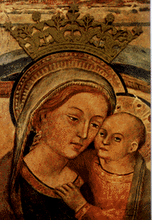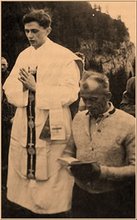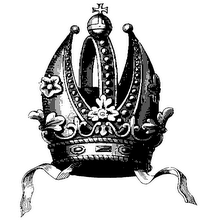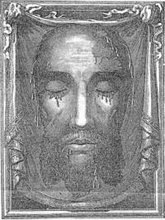My wife and I were concerned about the quality of the films produced by Hollywood and their impact on the minds of our children. We discussed, late into the night, that the Lord would ask us at the moment of our death: "Where are your children? and where is your wife or husband?" We knew that we would have to say: "Watching TV or a movie, Lord". The next question would invariably be: "..and what are they watching?" This idea of the Lord Jesus holding me accountable for what my family was viewing on TV frightened me because I knew that I could not be certain that the programs they were were viewing were not scandalizing them with images of impurity. Sensuality and impurity in film, stick to a child's brain like tar and is removed only with great difficulty. Movies today, even Disney productions, are laced with sensuality. When I looked more closely at what my children were viewing, I was shocked by the degree to which Hollywood was successfully endocrinating my children into the ideals of sensuality, and ultimately into the notion that feelings, not reason, should govern ones life. We also felt that Hollywood was convincing our children that God did not exist, and that their Catholic faith was a lie. Films like "The DeVinci Code" created great controversy and doubt around the Catholic church, and we found that it was difficult to protect our children from the lies. As Catholics we felt deeply called to counter Hollywood and its lies about religion, God and Catholicism. We decided to form this new film company, using our retirement money, and drew our community into action. We convinced them that we can make a difference as individuals. It is true that countering Hollywood is a little bit like David facing Goliath, but we understood that this call was real and powerfully strong. Many times I have asked the Lord to remove this desire if it was not from Him, but that if it was His inspiration, then to quadruple the intensity of the fire so that I could not stand it anymore. He answered my prayer with the latter. Using our church scola choir, we recorded the Miserere Mei as the theme song for our first movie short on the life of Saint Germaine Cousin. We wrote the script on the life of saint Germaine Cousin who lived in Pibrac France during the 17th century. Then we requested volunteer actors from our state university Theater and Dance department, and hired a professional crew of camera, sound and light specialists. With three days of filming we completed the short and then realized that a full motion picture needed to be done in order to fully reveal the miraculous life of this unknown Catholic saint. Sometimes called the ‘True-Life Cinderella’, Germaine Cousin grew up as a poor shepherd girl in 16th century France. Burdened with an unsightly and painful skin condition called scrofula, she was ostracized by her community and feared by her peers. After the death of her kind mother, her over-worked father remarried. His new wife was cruel and selfish, and beat little Germaine ceaselessly. Germaine was forced to sleep in the icy barn, year after year, and was required to do all of the work around her stepmother’s house. She was given barely enough food to eat, and was constantly subjected to horrible physical and emotional abuse. Her days were filled with back breaking labor and devastating isolation. Despite all this, Germaine’s heart was filled with love and forgiveness. Starving, she nevertheless shared her food with the desperate poor. Rejected by the town's people, she still prayed for her community’s well being, and for the souls of her tormentors. Her selflessness and love of Christ brought her closer to the most holy cross, and to a greater understanding of the redemptive nature of suffering. She soon began to perform miracles that wonderously transformed the people around her. She parted waters, turned bread to flower blossoms, healed the sick, and was protected from from hungry wolves by powerful angels. Constantly sick herself, she died at the age of 22. Approximately 43 years later, her body was exhumed in an incorrupt state, thus demonstrating her sanctity and holiness. Hers is a story of courage, love, and dedication to a holy life in which could be found the three pillars that hold up all saints, namely: prayer, charity and suffering. You can view the movie short: here:
GERMAINE: Requiem of a Soul. From the movie we created a documentary on suffering. The idea came from the realization that deep human suffering permeates our entire culture as evidenced by the epidemics of obesity, depression and sexually transmitted infections. Using medical experts and researchers in the fields of medicine, nutrition and sexual health, we produced a 96 minute documentary that explores the prevalence of the epidemics of obesity and sexually transmitted infections (STIs) in American society, and their relationship with deep moral, physical and spiritual sufferings which have now insidiously found their way into the lives of the American populace. The fabric of society is now changing into a culture guided by a dictatorship of relativism, for which no moral standards exist. The consequence is a youth that engages in lifestyles that rob them of the flame of purity and innocence, corrupting, as it were, their very souls and casting a shadow that blocks their access to life giving joy. This documentary is a must see for those searching for deep meaning and hope in life's journey and its many sufferings. It invites the audience to embrace a life in Jesus Christ and open their minds to new possibilities of experiencing joy in this life as well as in the next. Using footage from the Germaine movie short, the viewer can understand how suffering often results from abandoning ourselves to the Lord's perfect and holy will so that we may be able to also participate in the suffering of Christ on the cross. You can view the trailer to the
Theology of Human Suffering. .
David James






















01.jpg)




























